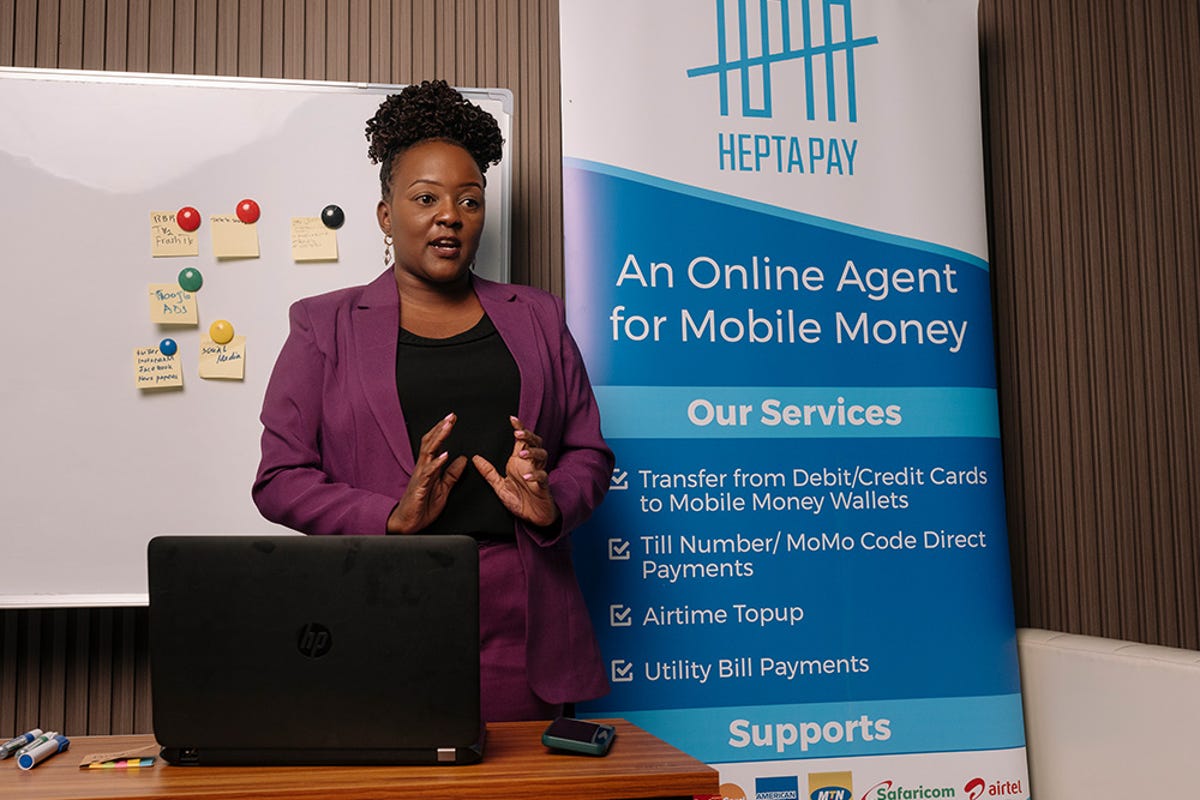Fellow Portrait
Victoria Munguti
HeptaPay

HeptaPay is an online platform allowing individuals and businesses in East Africa to receive card payments quickly and affordably from anywhere in the world.
Francophone Sub-Saharan Africa
Rwanda
Fellow
2024
Updated March 2024
Exorbitant transaction fees thwart remittances in East African countries
In Rwanda and many other East African countries, families rely heavily on remittances from kin living abroad. However, micropayments that flow into the country are slow and inconvenient with fees as much as 15 percent per transaction—five times higher than the United Nations sustainable development goal (SDG) target of three percent for remittance costs. This poses a significant burden, especially for sending amounts that are typically less than US$100.
“When we conducted research, we saw that a majority of transactions or diaspora inflows into East Africa consisted of many small transactions,” says HeptaPay founder Victoria Munguti.
We are unique because we are empowering micro payments in East Africa, which are very expensive on other remittance platforms.

HeptaPay’s online platform reduces user fees and delays, and eases merchant transactions
Victoria encountered the problem of high transfer fees and delays in receiving money from family when she moved to Rwanda to study. She also discovered that most local merchants did not accept debit or credit cards. She created HeptaPay to dissolve the barriers to cross-border money transfers and enable members of the East African diaspora to send remittances in less than a minute. The platform also lets businesses receive digital payments without investing in expensive point-of-sale systems or maintaining bank affiliations.
“Merchants have testified that using HeptaPay, they are now able to receive payments from a wider base of customers and increase their revenues,” Victoria says. They benefit from the easy-to-use plug-in, which they can start using quickly to start receiving international payments.
A typical customer is someone who lives abroad and would like to send money back home to family or friends. Tourists, who typically are in a country for only a few weeks, are also a target. They often do not need a local SIM card, but would like to make payments directly to local shops. HeptaPay solves this by letting them use an existing debit or credit card to pay local merchants directly.
Typically, even perfectly executed bank transfers take one to two business days to move money from abroad to any part of Africa. Using HeptaPay, your transaction will get to the destination within a minute or even 30 seconds.

Small fees and wide use mean enormous impact
Since its founding, HeptaPay has transferred US$1 million into East African economies. In 2022, it enabled 100 merchants to receive international payments.
The company has its eye on using technology to further reduce fees. Victoria explains, “We are already looking at ways we can use blockchain technology. Much of the cost comes because of middle players like card processors and banks that are taking a percentage from the fees. If we can eliminate those central points of control using blockchain technology, we will be able to step down our fees from six percent to something even less.”
Currently operating in Rwanda, Kenya, Uganda, and Burundi, the company aims to lower transaction fees to three percent across all African countries by 2030. “Brand trust has really grown,” Victoria says. “If everybody used HeptaPay, that would be a plus to our revenues and we would create huge impact in Africa.”
People get excited after the first transaction. You see a fear of online payments but then people make a one-dollar payment to test the platform and then come back and do four or five hundred.




